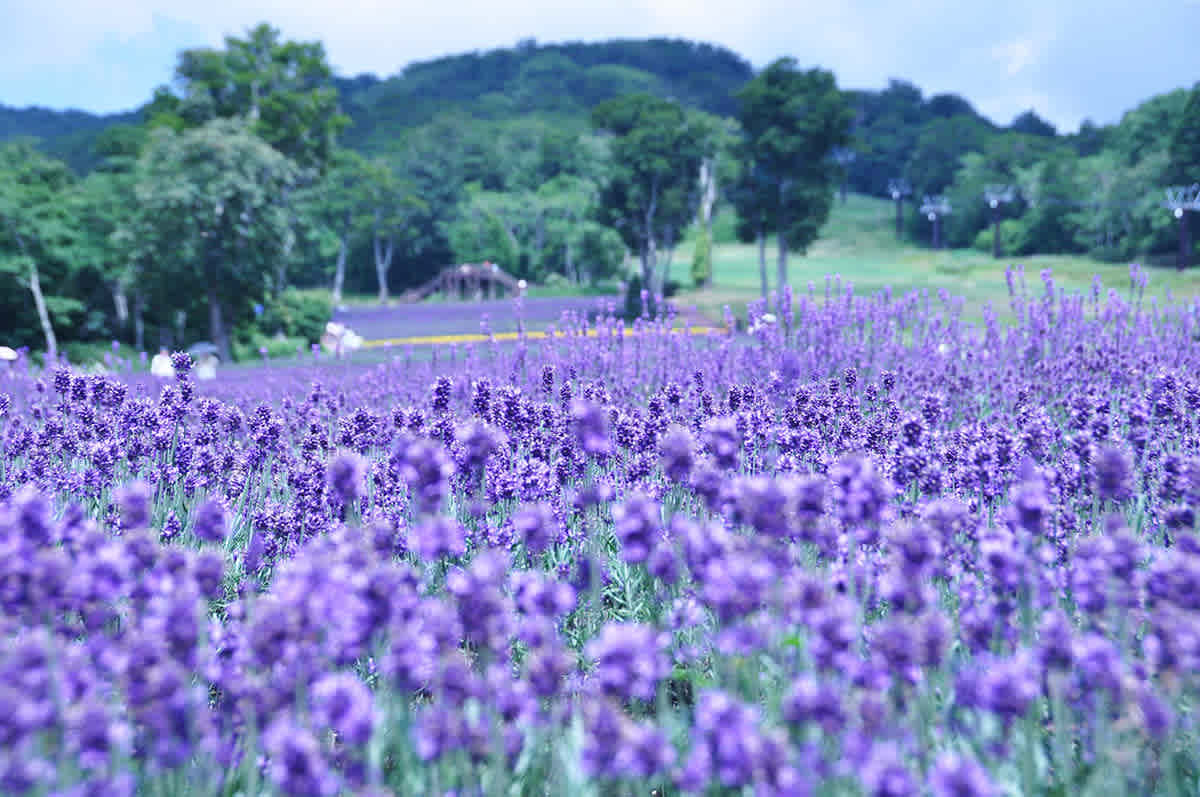
Key Takeaways:
- Lavender has a rich history dating back over 2,500 years and has been treasured by ancient civilizations for its therapeutic properties, making it a remarkable and versatile plant with a fascinating past.
- With over 450 varieties, lavender is not only known for its calming scent and antiseptic properties but also for its culinary uses, insect-repelling abilities, and symbolic significance in love and devotion, making it a truly astonishing and multi-faceted plant.
Lavender has been used for centuries.
Lavender has a rich history that dates back over 2,500 years. Ancient civilizations such as the Egyptians, Romans, and Greeks treasured lavender for its therapeutic properties. It was commonly used in bathing rituals, perfumes, and even as a natural insect repellent.
There are more than 450 varieties of lavender.
Did you know that lavender comes in a wide range of varieties? From the popular English lavender (Lavandula angustifolia) to the striking Spanish lavender (Lavandula stoechas), there are over 450 known species and cultivars of lavender worldwide. Each variety has its own unique appearance and scent.
Lavender is known for its relaxing properties.
The calming scent of lavender has been scientifically proven to help reduce stress and anxiety. Whether in essential oil form or as dried flowers, lavender has a soothing effect that promotes relaxation and a sense of tranquility.
Lavender is a natural remedy for insomnia.
If you struggle with sleepless nights, lavender may be the answer. Its gentle aroma has been associated with improved sleep quality and duration. Adding a few drops of lavender essential oil to your pillow or taking a relaxing lavender-infused bath before bed can promote a restful night’s sleep.
Lavender has antiseptic properties.
The essential oil extracted from lavender flowers possesses powerful antiseptic properties, aiding in the healing of minor cuts, burns, and insect bites. Its natural antiseptic qualities can also help soothe skin irritations and reduce inflammation.
Lavender can repel mosquitoes and other insects.
The scent of lavender is wonderfully fragrant to humans but repulsive to mosquitoes and other insects. Placing lavender plants or using lavender-based insect repellents can help keep pesky bugs at bay, allowing you to enjoy the outdoors without the annoyance of constant buzzing and biting.
Lavender is used in culinary dishes and beverages.
Not only is lavender used for its aromatic properties, but it is also a popular ingredient in culinary creations. The delicate flavor of lavender adds a unique touch to desserts, teas, and even savory dishes. Lavender-infused honey and lavender-scented ice cream are just a few examples of its culinary versatility.
Lavender has been used to make perfumes for centuries.
Lavender’s captivating scent has made it a coveted ingredient in the perfume industry for centuries. The unique blend of floral, herbaceous, and slightly sweet notes creates a timeless and enchanting fragrance that continues to captivate perfume lovers around the world.
Lavender symbolizes love, purity, and devotion.
Throughout history, lavender has been associated with love, purity, and devotion. It has been used in bridal bouquets, love potions, and as a symbol of loyalty. Lavender’s elegant and graceful appearance, coupled with its heavenly scent, makes it a beloved choice in weddings and romantic gestures.
In conclusion, lavender is not just a beautiful flower; it holds a myriad of astonishing facts and benefits. From its ancient origins to its versatile uses in aromatherapy, culinary delights, and more, lavender continues to enchant and inspire. Incorporating this remarkable plant into your life can bring a sense of calm, serenity, and appreciation for nature’s gifts.
Conclusion
In conclusion, lavender is a truly remarkable plant with a rich history and an array of astonishing facts. From its beautiful purple blooms to its versatile uses, lavender has captivated people for centuries. Whether you’re using it for relaxation, skincare, or culinary purposes, lavender has numerous benefits and can enhance your life in many ways. Its soothing aroma and therapeutic properties make it a beloved plant in the world of herbal remedies and aromatherapy. So next time you come across a field of lavender or a bottle of lavender essential oil, take a moment to appreciate the beauty and wonder of this extraordinary plant.
FAQs
Q: Can lavender be grown indoors?
A: Yes, lavender can be grown indoors but requires specific growing conditions such as bright light, well-drained soil, and proper air circulation. It’s best to choose a compact lavender variety suitable for indoor cultivation.
Q: How often should I water lavender plants?
A: Lavender plants prefer dry soil and are drought-tolerant. It’s essential to water them sparingly, allowing the soil to dry out between waterings. Overwatering can lead to root rot and the decline of the plant.
Q: Can I use lavender essential oil on my skin?
A: Yes, lavender essential oil is commonly used in skincare products for its soothing and anti-inflammatory properties. However, it’s important to dilute the oil before applying it to the skin and perform a patch test to ensure no allergic reactions occur.
Q: What is the best time to harvest lavender?
A: The best time to harvest lavender is in the morning, after the dew has dried but before the sun is at its peak. This is when the essential oil content is highest, giving you the most potent fragrance.
Q: Are there any medicinal benefits to using lavender?
A: Lavender has long been associated with various medicinal benefits, including reducing anxiety and stress, promoting better sleep, relieving headaches, and soothing skin irritations. However, it’s important to consult with a healthcare professional before using lavender for medicinal purposes.
Was this page helpful?
Our commitment to delivering trustworthy and engaging content is at the heart of what we do. Each fact on our site is contributed by real users like you, bringing a wealth of diverse insights and information. To ensure the highest standards of accuracy and reliability, our dedicated editors meticulously review each submission. This process guarantees that the facts we share are not only fascinating but also credible. Trust in our commitment to quality and authenticity as you explore and learn with us.


